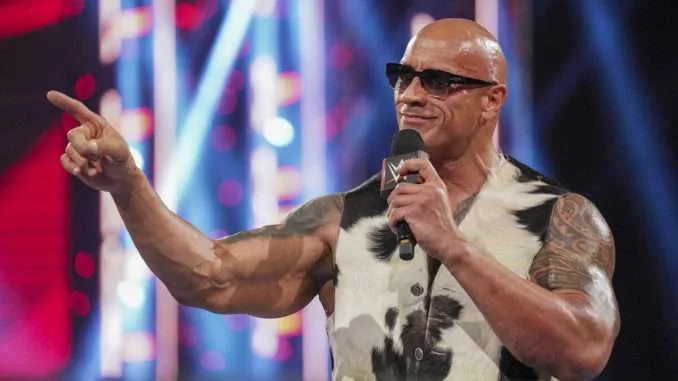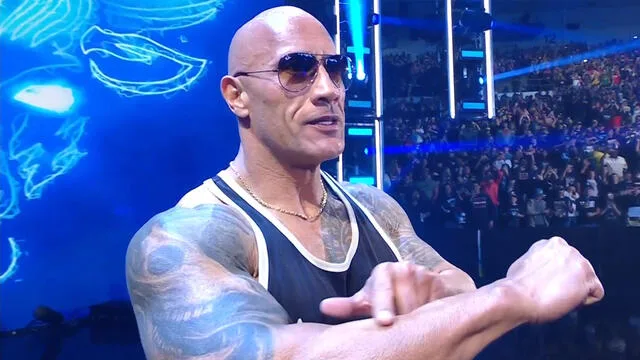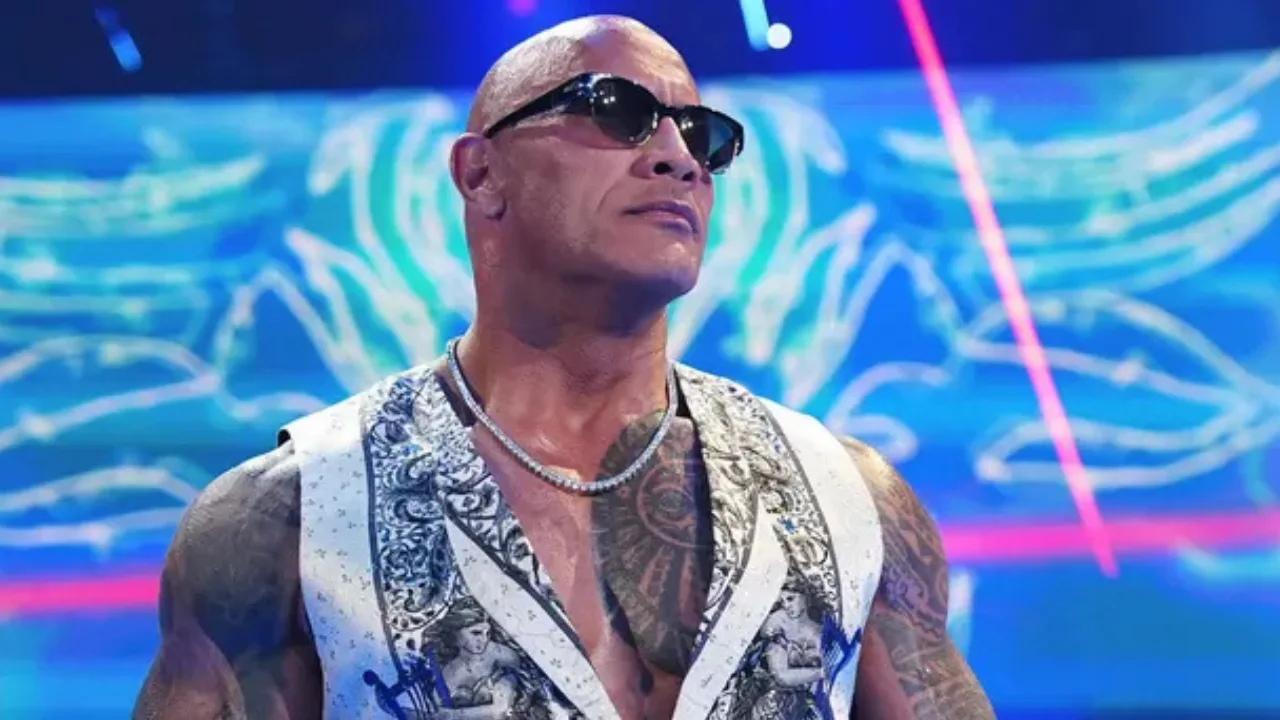The Rock returned to WWE this year, it was met with the loud emotion only someone his size could ask for. The moment his comeback was announced, fans started putting forward their theories about what the Great One was bringing on the table. Was he returning for one last run? Would he finally clash with Roman Reigns at WrestleMania? The hype was very high.
Yet, as the months passed, something became increasingly clear. What began as a possibly huge storyline slowly changed into a series of appearances that seemed more like a cover than a plan. This article talks about how The Rock’s recent participation in WWE seemed more exciting than strategic.
Rather than opening up as part of an exactly planned story, The Final Boss’ role looked more like an answer to outside pressures, most importantly, a guess over slow ticket sales for matches like Elimination Chamber. The promise of continuous description gave way to quick turn, and what could’ve been a defining curve gave increasingly more questions.
Table of Contents
The beginning of Hype vs. Reality

The Rock’s return came fast. Fans immediately imagined dream matches and imagined him headlining WrestleMania 41. With Roman Reigns at the top of his game as “The Tribal Chief,” a generational showdown between cousins seemed not only reasonable but unavoidable. WWE even teased this direction, positioning The Great One in segments and promos that made things bigger. However, reality didn’t quite live up to the early push.
Instead of a high-stakes singles match, The Rock found himself in tag team matches, promos, and segments designed more to mix cheer than build. While these appearances generated short-term excitement, they lacked the substance or progression fans hoped for. WrestleMania 41 came and went without The Rock stepping into the ring for a singles fight, making a sense of “what was the point?”
Selling The Soul: Cody Rhodes, The Rock and John Cena

The heel turn was unexpected. The Rock, teaming with Cody Rhodes and embracing the “Final Boss” personality, introduced an interesting character change. When fans heard him speak of “selling his soul,” it felt like the start of a long-term storyline.
Unfortunately, it didn’t quite match the setup. While the promos were burning, the storyline’s process didn’t deliver the drop or post implied by the “soul-selling” narrative. There was no slow solve for the story involving The Final Boss but it did open the gates for a John Cena heel turn. For such a heavy word, the payoff was little give his involvement. The Rock’s actions never fully justified the gravity of that turn, leaving many in admiration with nothing real.
Lack of Long-Term Planning Argument
The absence of a clear long-term strategy became clearer. The Rock’s return didn’t seem to be part of a pre-established arc. Instead, his appearances felt like they were being written week to week, based more on crowd reaction and business needs than a balanced storyline.
Take the regular changes in his role from surprise return, to possible WrestleMania headliner, to sidekick in a label match. There was little, and plans seemed too important suddenly without a narrative.
It didn’t help that the narrative around him didn’t build. It just turned, reacting to whatever WWE needed in the state. That sense of quickness may do in short open, but over time, it determines a powerful payoff.
The Elimination Chamber Ticket Sales Theory
One of the strongest pieces of evidence for this style is the theory that The Rock’s involvement increased due to falling ticket sales for the Elimination Chamber event. While WWE hasn’t confirmed this, many fans and wrestling media out of the way have said that his increased appearances were planned to increase the interest and ticket revenue.
Whether true or not, the timing raises eyebrows. The Rock’s return, coinciding with reports of less-than-expected sales, gives credence to the belief that his presence wasn’t part of a game strategy but rather a short-term fix to a particular interest. If that’s the case, it shows a fundamental issue in WWE’s storytelling philosophy, one where guesswork is greater than things, and short-term gains are prioritised over long-term investment.
Consequences

Fans, too, started to notice. While there was excitement, the lack of a satisfying reward left many disappointed. For some people, it even affected The Rock’s legacy, not because of anything he did wrong, but because of the promise of something that was never happy. The story didn’t just crack; it felt unfinished and unresolved.
In the end, The Rock’s return showcased WWE’s increasing dependence on old memories and reactive booking. Rather than planning 20 steps, giving importance to hype over story. And while that may bring a quick go of fan trending, it risks lasting, taking part, something even the most energetic in sports entertainment can’t fix on his own.

